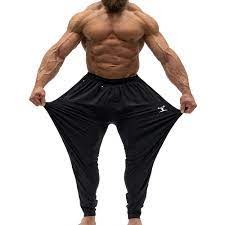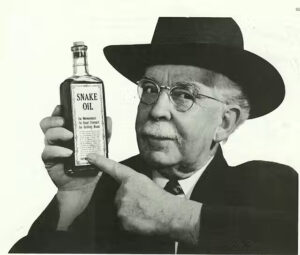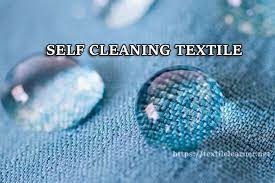Raboyseyee and Ladies,
The heylige Ois, eishes chayil and the rest of the mishpocho are out in Beverly Hills, CA to celebrate the aufruf -this coming Shabbis- of their amazing son Jonathan as he gets ready to marry Rachel Glouberman, IM’H this coming Sunday, August 6, 2023. A mazel-tov shout-out to our entire family upon this momentous occasion. Who is Rachel Glouberman? She is the beautiful daughter of Flora and Steven, OBM Glouberman, they of Beverly Hills, CA. A special mazel tov shout out to Jonathan’s grandparents, Ellie and Irv Bader, and to the entire Grossman and Bader family. Mazel tov as well to Rachel’s grandparents, Sultana & Maurice Jack Mayesh, to grandfather David Glouberman and to the entire extended Glouberman mishpocho. May Rachel and Jon merit to enjoy many decades of blissful marriage and may they build a beautiful family together; omen!
Selected for Good Things:
According to the heylige internet -and who besides Rashi knows more- non-iron shirts were first sold in 1953 by Brooks Brothers who manufactured wash-and-wear shirts using a blend of Dacron, polyester, and a wrinkle free cotton that was invented by Ruth R. Benerito, which they called “Brooksweave.” Is that emes? Ver veyst, but one thing is zicher: iron-free dress shirts are rather new to the market, at least in popularity. More on this topic below. As to men’s stretchy pants, in the past 5-10 years, men have grown more comfortable with the idea of incorporating spandex into their pants; we love them! Ober, is Elastane, the generic term for Spandex and Lycra, taka new? Was Lululemon mamish a trailblazer? Not!

As it turns out, long before noniron shirts and stretchy expandable pants – a life saver for orthodox Yiddin, especially over Pesach, Sukkis, shabbis and every other eating festival- were invented thousands of years earlier; both were invented by the RBSO Himself! As well, He also made stretchy shoes! Read all about these inventions in our parsha. We shall explore these below but first a very warm welcome to Parshas Eikev and the dog days of summer where an older and quite exasperated Moishe -mamish days before death- is reviewing his life as leader of the Yiddin for the past forty years.
He’s tried every trick under the sun to save their collective tuchiis (asses) from extinction; at least twice the RBSO talked about hitting the proverbial reset button. The Yiddin were damn good at angering the RBSO. This week, Moishe adds to his armamentarium when he introduces Jewish guilt while working valiantly to get them to change their lifestyle. He reminds that their behavior -since shortly after Matan Toirah- has been a recipe for disater. As the parsha opens Moishe will introduce the carrot and stick, one of the oldest tricks in the book in his final attempts to get them straightened out. Moishe resorts to bribing the Yiddin to do the right thing and believe in the RBSO. Not with cash but with brochos (blessings). And why not? Everyone loves a brocho; it’s like the shoutout. In our times, Toirah inspired Rebbes and Mikubolim (Kabbalists: aka: charlatans, not all but many) accept and often time also demand lots of money for access and blessings. They have thought carefully about Moishe’s words and have carved out a specialty niche in this segment of our beautiful religion: Everyone wants a brocho and many are mamish willing to pay for it. Veyter.

The parsha begins with Moishe, representing the RBSO, reminding the Yiddin of all the favors the RBSO did for them. Among the many were freedom from slavery, lots of riches as they cleaned out Mitzrayim on their way out, special munn bread which fell for 40 years, and let’s not forget the Moabite and Midianite shiksa hookers that were provided when the Yiddin arrived to, and rested at a place called Shitim. All needs met! Ober what Moishe is talking about this week is clothing and shoes; let’s read the relevant posik (8:4) posik innvaynig.
שִׂמְלָ֨תְךָ֜ לֹ֤א בָֽלְתָה֙ מֵֽעָלֶ֔יךָ וְרַגְלְךָ֖ לֹ֣א בָצֵ֑קָה זֶ֖ה אַרְבָּעִ֥ים שָׁנָֽה׃
The clothes upon you did not wear out, nor did your feet swell these forty years.
What’s taka pshat here? Was their clothing mamish indestructible? Did the Yiddin wear the same farkakteh outfits every day for 40 years? Oy vey! Did they not -while cleaning out Mitzrayim- pack a few extra outfits for their great escape? And but one pair of shoes? They wore the same shoes? Even the women? Say it’s not so please. And what happened when the kids grew into different sizes? And what about laundry services? Did they not launder their clothing for 40 years? The same underwear? Shoin, it’s one thing to turn your underwear inside out -b’shas hadchak (in case of emergency) but can one do this for 40 years? What’s real pshat here and why was Moishe boasting about shoes and clothing? Nu, when the heylige Toirah writes something a shtikel out of the ordinary, our sages were all over it and let’s taka read what a few had to say about Moishe’s words.

Says Rashi, שמלתך לא בלתה (THY RAIMENT DID NOT WEAR OUT). What really happened? The clouds of Divine Glory used to rub the dirt off their clothes and bleach them so that they looked like new white articles, and also, their children, as they grew, their clothes grew with them, just like the clothes (shell) of a snail which grows with it. You hear this raboyseyee? The magical midbar experience included laundry service and the ability for clothing to grow as the people grew. Find this pshat in the medrish (Yalkut Shimoni 850); gishmak! As to shoes, says Rashi azoy: לא בצקה [AND THY FOOT] DID NOT SWELL like dough (בצק), as is usual with those who walk barefoot — that their feet become swollen. Wow! The bottom line: the people left Mitzrayim with but the clothing they were wearing. Grada this makes sense; they did believe they were heading directly to the promised land where they would go shopping for new clothing. Does everyone agree? Not! Let’s read this:
שמלתך. יש אומרי’ דרך אות ואחרים אומרים כי הוציאו מלבושים רבים ממצרים ויתכן שאין בתולדת המן להוליד זיעה:
Some say via a miracle. Others say that the Yiddin brought out many garments from Egypt. However, it is most likely the nature of manna not to produce sweat.
Let’s also read the Ramban who has this to say: “The clouds of [Divine] Glory brushed their garments and pressed them so that they looked like freshly ironed articles; and so it was with their children, as they grew their garments grew with them.” This is Rashi’s language and also are the words of Agadah. But Rabbi Abraham ibn Ezra wrote: “Other scholars say that they took many garments out [of Egypt]. And it is possible that it was not in the nature of the manna to produce perspiration [thus enabling their garments to last so long]. And so also he stated that neither did thy feet swell, meaning that He gave them strength or that He led them slowly.” But his [Ibn Ezra’s] words are not correct, for Moishe mentions this to them in order to say that upon observing the commandment [of the RBSO] they will have food and raiment, and renew [their] strength, even as they lived by the manna forty years and they had garments, and the way with their feet they treadeth not. All of this was miraculous, for by every thing that proceedeth out of the mouth of the Eternal doth man live and becomes supported. And if you were to cover a rafter with a new cloth it would wear out in forty years even though there is no perspiration, how much less man, that is a worm.
The bottom line: According to Rashi quoting his sources, the Yiddin left with but one outfit, one pair of shoes and shoin. The RBSO performed miracles daily through His Ananei Hakovid (clouds of glory) and somehow their clothing remained clean or was cleaned nightly or daily by the clouds of glory. As well, their shoes which trekked kimat 700 miles during their 40-year stay, remained brand new. Shoin, when it comes to miracles, there are no questions that cannot be answered. Ober, according to the Ibn Ezra who takes a more logical approach, it’s all quite simple: the Yiddin left with at least several changes of outfits. Which was it? Ver veyst?

In the medrish on this topic, we find the following exchange: The heylige Toirah tells us that the clothing did not wear out!” To this Rabbi Simai retorted: ”did then the clothing grow with the children?” He was told to take his cue from the lizard whose skin (compared to clothing because it is shed) also grows with it. To this came the question: “did this clothing not ever need laundering?” He was answered that the cloud would both wash it and iron it. The questioner then wanted to know if these clothes did not ever burn, catch fire? He was told to observe a certain category of animal called Sitin (salamander) which are “sort of dry-cleaning themselves” in fire without suffering burns. The questioner now wanted to know if the people wearing the same clothing for forty years did not ever experience attacks by vermin such as lice, etc.? Thereupon the questioner was told that if the bodies of these people were not subject to attacks by worms, they would certainly not be victimized by vermin while they were alive. The next question concerned the foul smell that must have emanated from people who wore the same clothes year in year out without change. The answer given was that the traveling well produced fragrant smells which neutralized any stench emitted by the clothing of the people. This is why they did not have to change their garments at all. In fact, according to our tradition this well made all kinds of herbs grow, herbs the fragrance of which could be inhaled from one end of the earth to the other. The people would waft these herbs to and fro; this is what Dovid Hamelech referred to in Psalms 23,2 בנאות דשא ירביצני, “He makes me lie down in green pastures.” And now you know.
Let’s close out with this chilling sentence delivered by Moishe to the Yiddin: Said Moishe (Devorim 9:1-7) azoy: “Listen Israel, today you are about to cross the Jordan to conquer and inherit the land of nations greater and stronger than you, cities enormous and fortified up to the heavens; a people big and tall, sons of giants whom you know (and who inspire fear in all around them); know that you will conquer them, but not because you deserve it! Remember; don’t forget how you angered the Lord in the desert.”
לֹ֣א בְצִדְקָתְךָ֗ וּבְיֹ֙שֶׁר֙ לְבָ֣בְךָ֔ אַתָּ֥ה בָ֖א לָרֶ֣שֶׁת אֶת־אַרְצָ֑ם כִּ֞י בְּרִשְׁעַ֣ת ׀ הַגּוֹיִ֣ם הָאֵ֗לֶּה יְהֹוָ֤ה אֱלֹהֶ֙יךָ֙ מוֹרִישָׁ֣ם מִפָּנֶ֔יךָ וּלְמַ֜עַן הָקִ֣ים אֶת־הַדָּבָ֗ר אֲשֶׁ֨ר נִשְׁבַּ֤ע יְהֹוָה֙ לַאֲבֹתֶ֔יךָ לְאַבְרָהָ֥ם לְיִצְחָ֖ק וּֽלְיַעֲקֹֽב׃
It is not because of your virtues and your rectitude that you will be able to possess their country; but it is because of their wickedness that your G-d is dispossessing those nations before you, and in order to fulfill the oath that He made to your fathers Abraham, Isaac, and Jacob.
Did you read that? The Yiddin were still not land worthy. Were they ever? Ver veyst? Moishe tells the Yiddin that though their behavior was at times -most of the time- less than admirable and at other times quite despicable, not to worry because the nations that were occupying that very land were much worse. Shoin! He continues and says: “It is not because of your virtues and rectitude that you will be able to possess their country; but it is because of their wickedness that the Lord your G-d is dispossessing those nations before you, and in order to fulfill the oath that the Lord made to your fathers… ”
Moishe will then -as do our wives- become historical and remind the Yiddin of their various and frequent defiance in the RBSO’s ways. Seemingly, Moishe’s intent was to have the Yiddin acknowledge that they were taka not land worthy and that it was only due to the benevolence of the RBSO and His promise to our forefathers which was allowing them entry. Ober, efsher we can ask azoy: How can the nations not behaving be the reason for us conquering the land, if the Yiddin’s behavior was less then exemplary and at times despicable? Vyst zich ois (it appears) that neither the inhabitants, nor the Yiddin deserved the land. Moreover, if the RBSO decided that the Yiddin were land-worthy due only to the promise made to our forefathers, why is the behavior of the inhabiting nations at all relevant? What’s actually going on here? Would the Yiddin have gotten the land were the goyim well behaved?
Nu, efsher we can kler azoy: pshat might be that we don’t always have to be deserving, could that have been Moishe’s message? Moishe spends a long time talking about the people’s sins, not to make them feel guilty, but to make a different point: the RBSO is giving you the gift of the land of Israel not because you deserve it, but because He loved your ancestors and He loves you. You have been selected! Moishe says: loi betzidkascho – not because of your merit or virtue or righteousness. Farkert (the opposite is true), he goes to great lengths to show how from beginning to end, the people angered and rebelled against the RBSO. And the tachlis (purpose) of this repetition? Efsher he wanted to point out with even greater clarity of the RBSO’s love for the Yiddin; His love for them was not based on merit. The Yiddin did not necessarily deserve this love and therefore they could not lose it. Moishe tells them they have already done all the terrible things possible and yet the RBSO stuck with them and is giving them the gift of the land.

And taka earlier this week, the heylige Ois shared a similar thought with a chaver while on a walk through back Lawrence. when the RBSO selects you for good things, be it family, career, wealth, health, or fame, one does not necessarily need to be deserving. One needs but to be selected. The heylige Toirah is chock full of stories about people that -at least on the surface- seemed undeserving, yet the RBSO selected them for greatness. Let us not -in the days just past Tishe B’ov name names ober the behavior of Yoisef’s brothers does beg the question.
The good news: We are but human and often veer off course. All that being said, from time to time, the RBSO who loved our grandparents -our forefathers and mothers- gives us gifts we don’t necessarily deserve simply out of love. And more good news: though Moishe spends the greater part of his last 35 days on earth admonishing the Yiddin about their past misdeeds, in the end, it was they who were to cross the Jordan and enter the land. He did not fare as well; let’s keep that in mind. The Yiddin of that generation were taka bad but there were many others -specifically the inhabitants of the land- who were seemingly much worse. The bottom line: when being judged it may all depend against whom. This may be your best defense.
Our challenge: figuring out how to get on His selected-for-good things list.
A gittin Shabbis-
The Heylige Oisvorfer Ruv
Yitz Grossman
1 Comment
Our friend Beril S sent me a picture of you and your wife walking down the chusen. MAZEL TOV and may the new couple bring much nachas to the two families and HKB’H